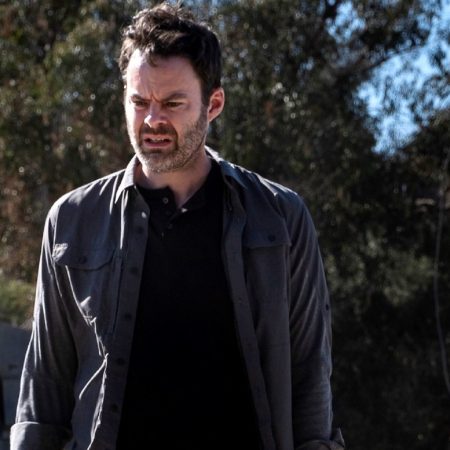On Sunday night, the 76th Primetime Emmys will honor the best in television, and if you’re making wagers, you’d be wise to put your money on The Bear. The chef-centered show is nominated for a whopping 23 awards this year, setting a new record for the most nominations for a comedy series in a single year. But is it…actually a comedy?
If you’ve seen The Bear, you know it’s not exactly your typical workplace sitcom. The subject matter is heavy: suicide, addiction, anxiety, grief and workaholism, not to mention all the stress, spills and knife wounds that come with working in a kitchen. Like all great shows, it knows how to pepper in the right amount of comic relief and charisma to ease some of the tension. But if you’re laughing more than you’re crying watching Carmy navigate his family trauma and push down all his unprocessed feelings about his brother’s death until they boil over in the form of a panic attack, you’re probably a sociopath.
We can all agree that season 2’s Christmas episode, “Fishes,” was one of the greatest episodes of television of all time, but that’s because it contains tour-de-force dramatic performances from Jamie Lee Curtis and Jon Bernthal (who both already won Outstanding Guest Actress in a Comedy and Outstanding Guest Actor in a Comedy, respectively, at last weekend’s pre-ceremony), not because it has a scene where the Faks dance to “Dominick the Donkey” in matching outfits.
Of course, no disrespect to the Faks — those lighter moments play a crucial role in all the great prestige dramas. What would Mad Men be without Roger Sterling’s wit? Would The Sopranos stand on its own without all the scenes of Tony and the gang busting each other’s balls or Livia Soprano rolling her eyes at her son and wishing the Lord would take her? Barry spent several seasons making us laugh at murder-for-hire only to remind us by the end that its protagonist is an irrevocably damaged monster. Hell, Succession had just as many hilariously foul, rapid-fire one-liners as Veep. That’s because life isn’t all one thing; it’s hilarious and devastating and sometimes hilariously devastating. The best TV shows reflect that chaotic blend of comedy and drama — and the Emmys have no idea what to do with them.
What, exactly, determines what counts as a comedy and what belongs in the drama category? Is it the number of jokes per episode? Overall theme? No, the Academy of Television Arts & Sciences prefers to keep it simple: comedies are 30 minutes long, and dramas are a full hour. (Yes, they technically did away with this formal rule after the 2021 ceremony, but they’ve continued to stick with it as a general rule of thumb since then and continued to relegate half-hour shows to the comedy categories. Their official rule now states that the content of the episodes must be “primarily comedic for comedy series entries, or primarily dramatic for dramatic series entries,” which is of course incredibly vague and open to interpretation.) It’s an antiquated system that doesn’t account for the recent popularity of the dramedy — not to mention the fact that, thanks to streaming, shows are no longer beholden to strict runtimes. One episode of a series might be 20-something minutes while the next stretches out to 45. Does that make it more or less funny?
“The Bear” Backlash Was Inevitable. Here’s Why It’s Wrong.
Season 3 is a rough one for Carmy, but it’s a reminder of what makes the show greatHow can we even begin to rate Jeremy Allen White’s performance as Carmy on The Bear against what Larry David did on Curb Your Enthusiasm‘s final season? It’s comparing apples to oranges. And because awards shows will always favor a showy dramatic performance over a pitch-perfect display of comedy chops (Barbie should have won Ryan Gosling an Oscar), it’s unfair to all the more traditional sitcoms to make them compete against something like The Bear or Barry.
So what’s the solution? That’s where it gets tricky. It’s not simply a matter of shoving these shows into the drama categories; it’s time for the Emmys to embrace nuance and find a better way to honor the shows whose tone falls somewhere in the middle. Doing away with category altogether doesn’t seem like the solution, because then we’d be presented with the same situation: standard sitcoms like Abbott Elementary competing against artsy dramedies like The Bear that are guaranteed to run away with the whole thing.
Maybe the answer is to get more specific and add more categories, a la the Grammys. They’d have to workshop the name, but breaking up the broad Comedy categories into something like Dark Comedy and Traditional Sitcom feels like a feasible path forward. Shows that toe the line between drama and comedy aren’t going away, and we’ve already relegated certain types of comedy to their own categories by shuffling all the late-night programming to the Outstanding Variety Talk and Outstanding Variety Sketch awards. The Academy has already determined that asking The Tonight Show to compete in the same category as Saturday Night Live is a bridge too far. Why, then, are they hell-bent on making the celebrities who do an outstanding job hosting SNL compete against a harrowing depiction of an alcoholic mother alienating her family, as in the Guest Actress in a Comedy Series category?
Adding more categories not only levels the playing field, it also makes for a more interesting awards show. The Bear is absolutely deserving of every accolade it racks up on Sunday night, but it’s all but guaranteed to win the majority of the awards it’s nominated for. Where’s the fun in that? Who wants to watch an awards show where you already know who’s going to win everything — especially if it’s the same show that already dominated last year? Breaking up the Comedy categories and forcing shows like The Bear to compete against programming that’s closer to it in tone raises the stakes and makes things more interesting. And, best of all for the Academy, it just means more — more awards to hand out, more celebrities to invite to grace us with their presence on the red carpet, more people tuning in to see if their favorite performer will be honored for their work.
To that, we simply say, “Yes, chef.”
This article was featured in the InsideHook newsletter. Sign up now.

























